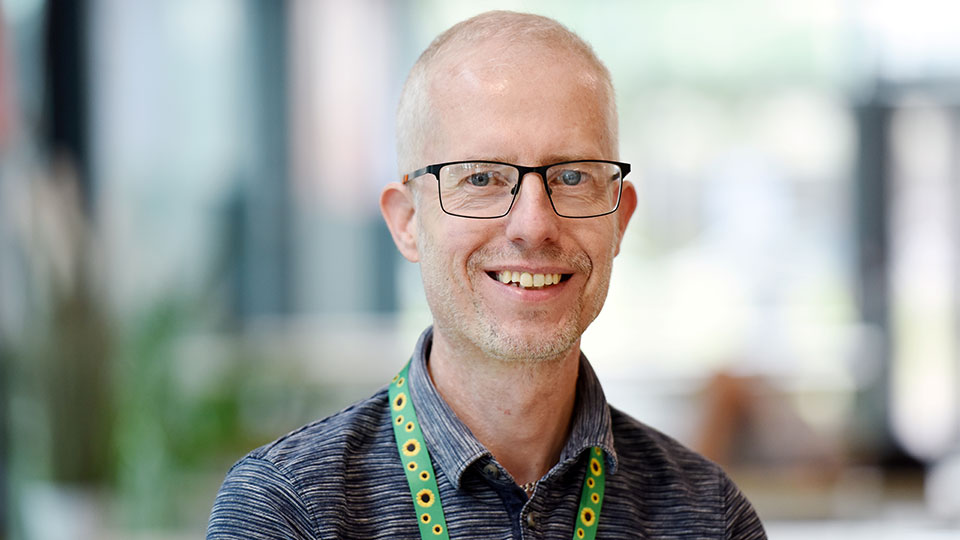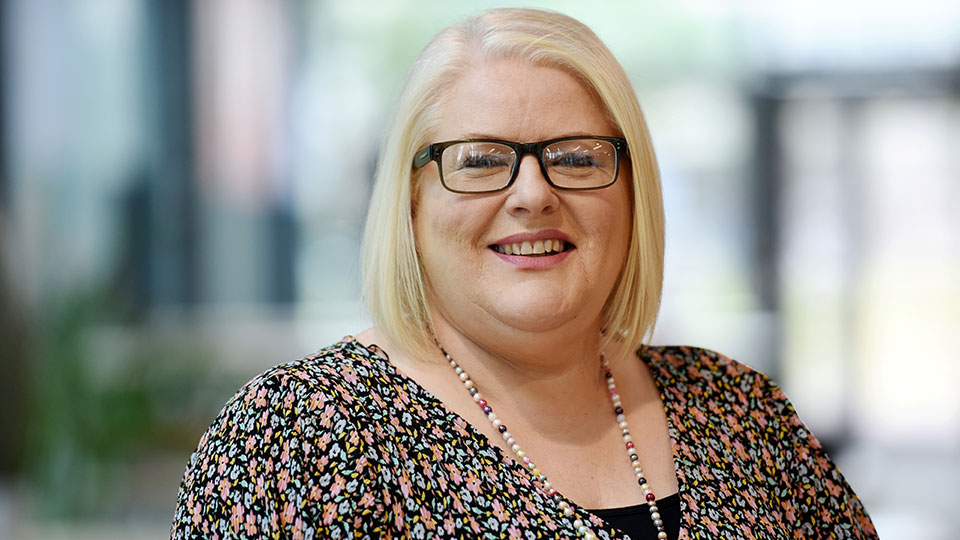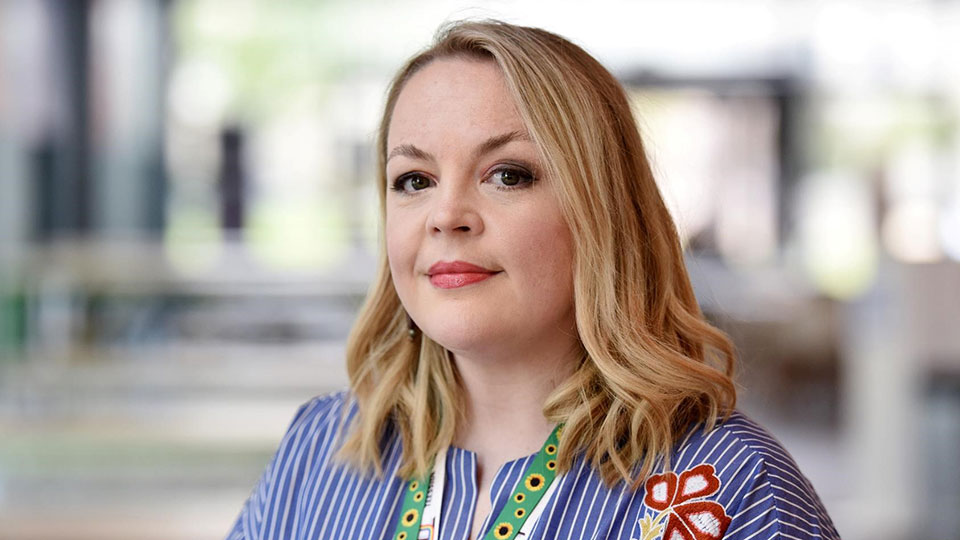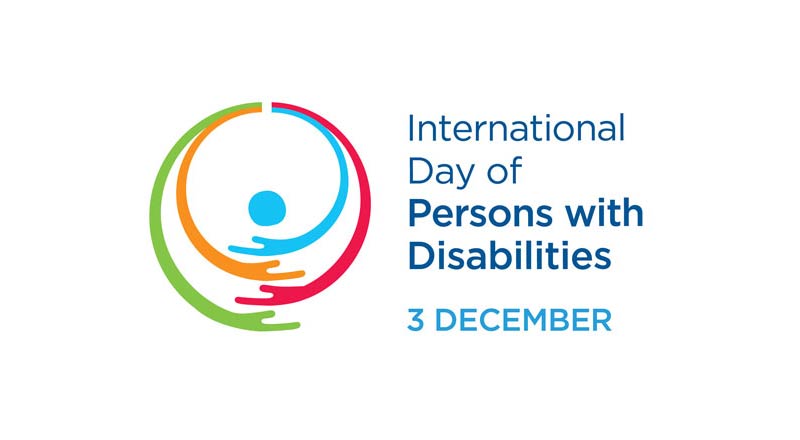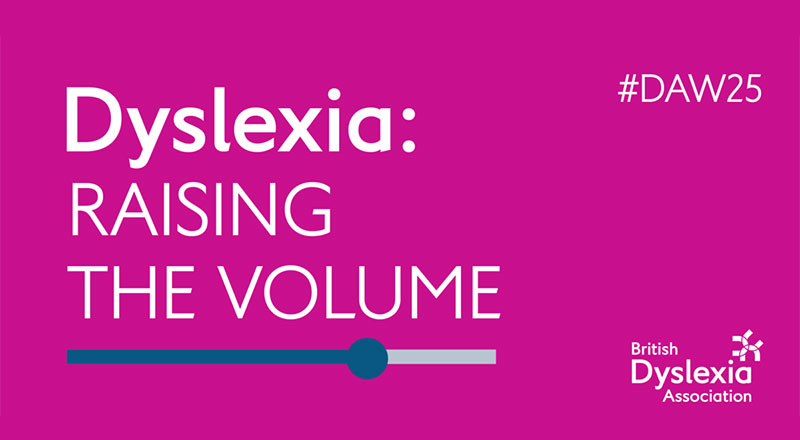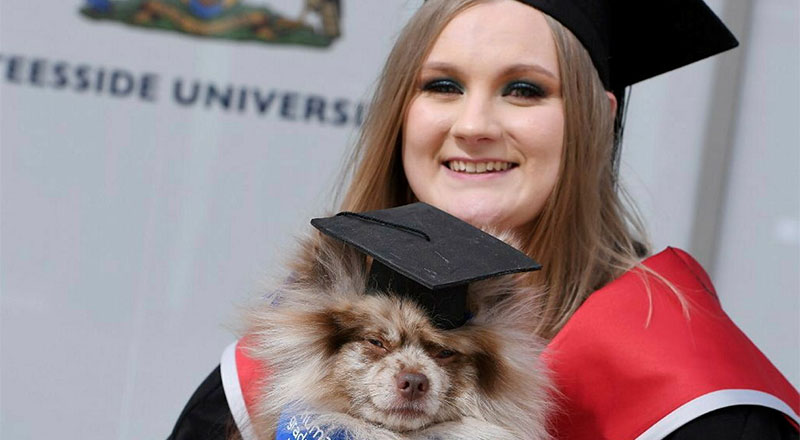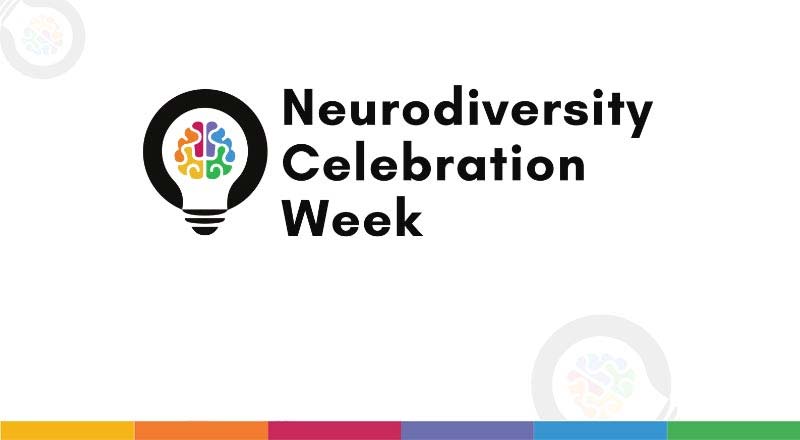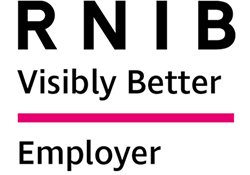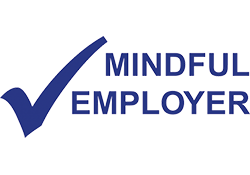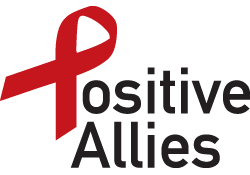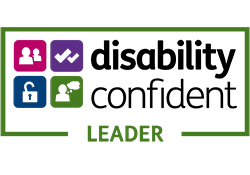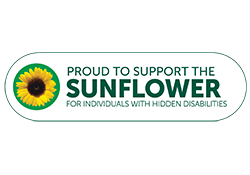As members of Team Teesside, we proudly celebrate the fact we are all different and we are all equal. Our University is a welcoming and inclusive place to work and study, and as a Disability Confident Leader we believe that everyone should have the opportunity to achieve their full potential at Teesside. Our Disability Focus Group plays a vital role in promoting awareness of all disabilities and helps influence positive organisational and cultural change across the University.
Disability
is defined as anyone that has a long-term health condition, impairment or illness that has a substantial effect on their ability to do normal daily activities. This includes physical, sensory, intellectual, social, behavioural, and mental health conditions or impairments.
Hidden Disabilities Sunflower Campaign

The Sunflower has become a globally recognised symbol for hidden disabilities, and our University has signed up to the initiative to enable colleagues to indicate to others that they have a non-visible disability and may need a helping hand, understanding, or just more time.
It is a discreet way to make the invisible visible, and colleagues can choose to wear a Sunflower lanyard, badge, or wristband to facilitate a conversation and to share an awareness of their condition.
If you see a colleague wearing the Sunflower symbol, please be kind, patient and respectful.
If you would like to learn more about a specific hidden disability, visit Hidden Disabilities Index webpage.
Campaign details are available on the Hidden Disabilities Sunflower Campaign website.
Disability Confident Leader

As a Disability Confident Leader, we believe that everyone should have the opportunity to achieve their full potential at Teesside. We are proud to support our disabled colleagues, and we continue to strive to become a more accessible and inclusive organisation.
Campaign details are available on the Disability Confident Scheme website.
The social model of disability
is a way of viewing the world, developed by disabled people. The model says that people are disabled by barriers in society, not by their impairment or difference.
- Barriers can be physical, like buildings not having accessible toilets. Or they can be caused by people's attitudes to difference, like assuming disabled people can't do certain things.
- The social model helps us recognise barriers that make life harder for disabled people. Removing these barriers creates equality and offers disabled people more independence, choice and control.
About Disability Focus Group
As members of Team Teesside, we proudly celebrate the fact we are all different and we are all equal.
Our Disability Focus Group is one of the five focus groups within the Equality and Diversity umbrella. The group comprises of our executive champion, chairs, and a broad cross-section of colleagues (both identifying as disabled and non-disabled) from all our schools and departments.
Disability Focus Group executive champion and chairs
- Executive Champion - Malcolm Page, Chief Operating Officer.
- Chairperson - Dr Emma Bradburn (e.bradburn@tees.ac.uk), Digital Learning Specialist, Student Learning and Academic Registry.
- Vice Chairperson - Lindsey Paylor-Orr (l.paylor-orr@tees.ac.uk), International Marketing Officer, International Development
Our Objectives
Our main objective is to to ensure our campus and communications are as accessible and inclusive as possible, so we all have equal opportunity to achieve our full potential.
We promote disability awareness and influence positive organisational and cultural change across the University. Underpinned by our Values & Behaviours Framework, we use campaigns and initiatives to engage our university community and spotlight disability matters.
Becoming a member
Becoming a Focus Group member has many benefits, including the opportunity to make a difference to our University community, raise your profile, and work with new people. New members who are willing to actively participate are always welcome. Membership entails
- attending meetings
- sharing ideas to develop plans
- sharing tasks and responsibilities
- implementing new campaign initiatives
The group meets four times a year during working hours. Please let your line manager know if you would like to volunteer.
Team Teesside members share their experiences to change misconceptions about disability, and what colleagues can do to create a more inclusive campus.
Creating safe spaces for disabled people to talk about their experiences is important. Listening will help us to better understand the barriers we encounter and make the right changes, so we can all thrive.
Latest news
TU Support
Staff
We recognise that disabled colleagues may require some practical adjustments, support, or guidance to achieve their full potential, and one of the ways we help is through our Reasonable Adjustments Passport.
This document is an up-to-date record of adjustments agreed upon between a disabled employee and their manager, to support the person at work.
The passport makes it unnecessary for the individual to reiterate or renegotiate their reasonable adjustments if they take on a new role or their line manager changes.
Download our Positive About Disability guide for new and existing disabled staff. It is also aimed at staff who may have a long-term health condition but may be unsure if their condition is a disability.
Students
We're proud to provide an inclusive and empowering learning environment that enables success for all.
We provide advice to students and applicants as well as help to arrange tailored support for students with long-term health conditions; sensory impairments; physical and mobility impairments; mental health conditions; autism spectrum conditions; and, specific learning difficulties.
For information on support available please visit the Disability page on the Student Life portal.
All different, all equal
Embracing diversity and actively opposing prejudice through creating an environment where equality and inclusivity can flourish is one of our core values.
Our Values and Behaviours framework supports how we work together towards the achievement of our aims and objectives.
Download Values and Behaviours framework
Inclusive language can make a difference
Teesside University will be inclusive through our use of language and ever mindful of those we risk excluding through our words and phrases.
Inclusive language guidance
We have a commitment toward giving our staff and students a voice on disability and neurodiversity matters. The Disability Focus Group is here to provide everyone with the opportunity to make a difference to our university community by sharing experiences and promoting awareness.
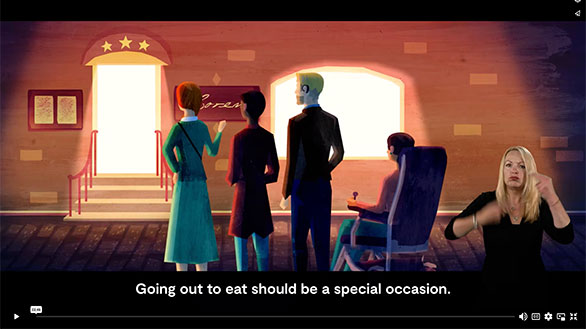
Accessibility Vs Inclusion
Articulating the difference between accessibility and inclusion can be tricky at times. However, it's important to understand the differentiation when creating a service or a workplace culture that engages with, values and celebrates disabled people.
Dyslexia
Dyslexia is a neurological difference and can have a significant impact during education, in the workplace and in everyday life. As each person is unique, so is everyone's experience of dyslexia. It can range from mild to severe, and it can co-occur with other learning difficulties. It usually runs in families and is a life-long condition.
Neurodiversity
Someone who is neurodivergent behaves, thinks and learns differently compared to those who are neurotypical. This term can be used to describe an individual whose brain functions differently to what we consider "normal". This includes people with autism, ADHD, Tourette's, dyslexia and a range of other neurodiverse conditions.
Autism
Autism is a lifelong developmental disability which affects how people communicate and interact with the world. More than one in 100 people are on the autism spectrum and there are around 700,000 autistic adults and children in the UK. Autism is a spectrum condition that affects people in different ways. Like all people, autistic people have their own strengths and weaknesses.
Training courses
Young Epilepsy
This is an online epilepsy awareness training course aimed at educational professionals. You will gain a better understanding of the impact epilepsy can have on a young person's ability to learn and psychological, social, and emotional well-being. The course takes approximately 90 minutes to complete, and you will need to create a login.
Find out moreRNIB: Understanding Sight Loss eLearning
Do you need a better understanding of sight loss and how to support a blind or partially sighted colleague? Perhaps you want to find out about the support available to you as an employer.
Whether you are a manager recruiting new staff, a supervisor or a colleague working alongside someone with sight loss, our course is for you.
There is no cost and you can work through our e-learning in your own time. You can complete the full course in around an hour, or you can learn in shorter blocks, if that's better.
Find out moreNavigating Neurodiversity and the Workplace: Neurodivergent Strategies webinar
A comprehensive guide for neurodivergent adults in the workplace. This session is designed to empower neurodivergent employees.
Find out moreWhat is Neurodiversity?
An introduction on Neurodiversity. Perfect for HR, Managers and Supervisors
Find out moreNeurodiversity Webinars
An introduction on Neurodiversity. Perfect for HR, Managers and Supervisors.
Find out moreResources
Disability Focus Group
We work with colleagues to ensure our campus and communications are as accessible and inclusive as possible, so we can all reach our potential.
More about the Disability Focus Group
Microsoft Accessibility Checker
Improve accessibility in your documents and content with this helpful tool available in most Microsoft 365 apps.
More about the Microsoft Accessibility Checker
Microsoft 365 Accessibility help & learning hub
Explore the best practices, tools and tips on how to easily make your documents, emails and content accessible to everyone.
More about the Microsoft 365 Accessibility help & learning hub
Website Accessibility Tools, Recite Me
According to Recite Me, over 1 billion people worldwide encounter barriers when trying to read and understand content online. This can be due to disabilities, learning difficulties, visual impairments, or if people speak English as a second language.
The Recite Me toolbar makes our website digitally inclusive by allowing users to customise the content in ways that work best for them.
To use Recite me on the TU website, select the orange Accessibility Tools tab at the top right of the web page.
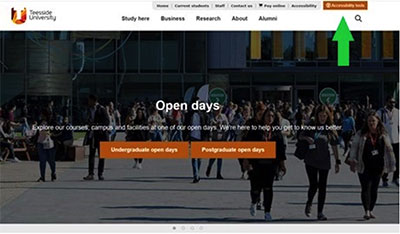
Neurodiversity Information Leaflets
- Attention Deficit Hyperactivity Disorder (ADHD): An Introduction
- Attention-Deficit Hyperactivity Disorder
- Autism Spectrum Conditions(ASC): An Introduction
- Developmental Language Disorder (DLD)
- Dyscalculia: An Introduction
- Developmental Coordination Disorder (DCD, Dyspraxia): An Introduction
- Neurodiversity Glossary
- Neurodiversity Top 10 Tips
- Neurodiversity Versus Other Areas of Diversity
- Tourette Syndrome - the simple truth. A guide to TS for children and young people
Accessible guides and tips sheets


